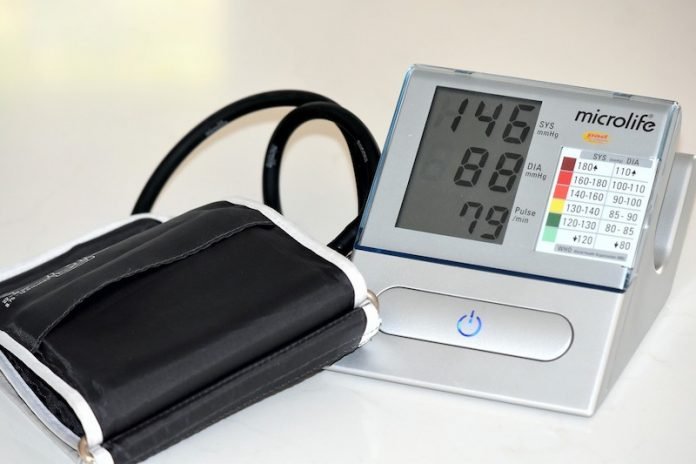
Researchers found that blood pressure recording over 24 hours is the best predictor of heart and vascular diseases.
They found blood pressure recorded over 24 hours could predict these health conditions more accurately than blood pressure measured on a single occasion.
The research was conducted by a team from KU Leuven in Belgium and other institutes.
High blood pressure is the most important treatable risk factor for diseases of the heart and the arterial system.
Although heart and vascular disease are strongly linked to blood pressure, irrespective of how it is measured until now scientists did not know which type of blood pressure measurement could capture risk most accurately.
In the study, the team followed 11,135 individuals for 14 years. Study participants included residents of 12 countries in Europe, East Asia, and Latin America.
At the start of the study, they made individual blood pressure measurements using all available approaches and determined other risk factors.
Blood pressure was also recorded over a 24-hour period using automated portable blood pressure monitors.
The number of blood pressure measurements averaged 30 during the daytime and 10 during sleep.
The researchers compared the predictive accuracy of blood pressure measurements made by a healthcare provider in an office setting, to repeated blood pressure measurements recorded for 24 hours.
They found that the probability of heart and vascular disease during follow-up was closely linked to the blood pressure measured over a 24-hour period.
One of the advantages of measuring blood pressure during sleep, with patients lying down in bed, is that the results are not influenced by daytime activities or meals.
This at least partly explains the accuracy of nighttime blood pressure in predicting cardiac and vascular illness.
The team says it is necessary to use 24-hour measurements to diagnose high blood pressure and to institute and fine-tune its treatment.
It enables the prevention of heart disease by starting treatment in a timely manner.
They suggest ambulatory 24-hour blood pressure monitoring should be available at all levels of the healthcare delivery chain.
The authors of the study include Professors Jan A. Staessen and Zhen-Yu Zhang of KU Leuven in Belgium. The study was published in JAMA.
If you care about blood pressure, please read studies about diets that could help reduce high blood pressure, diabetes, and this gum disease may double your risk of high blood pressure.
For more information about blood pressure, please see recent studies about high blood pressure drugs that could increase the risk of this heart disease, and results showing plant-based diet may protect you from high blood pressure.



